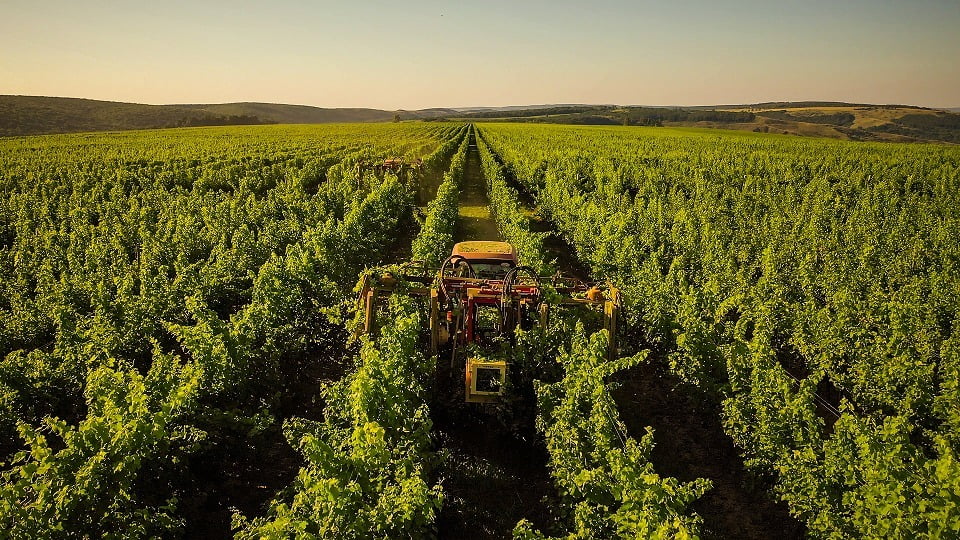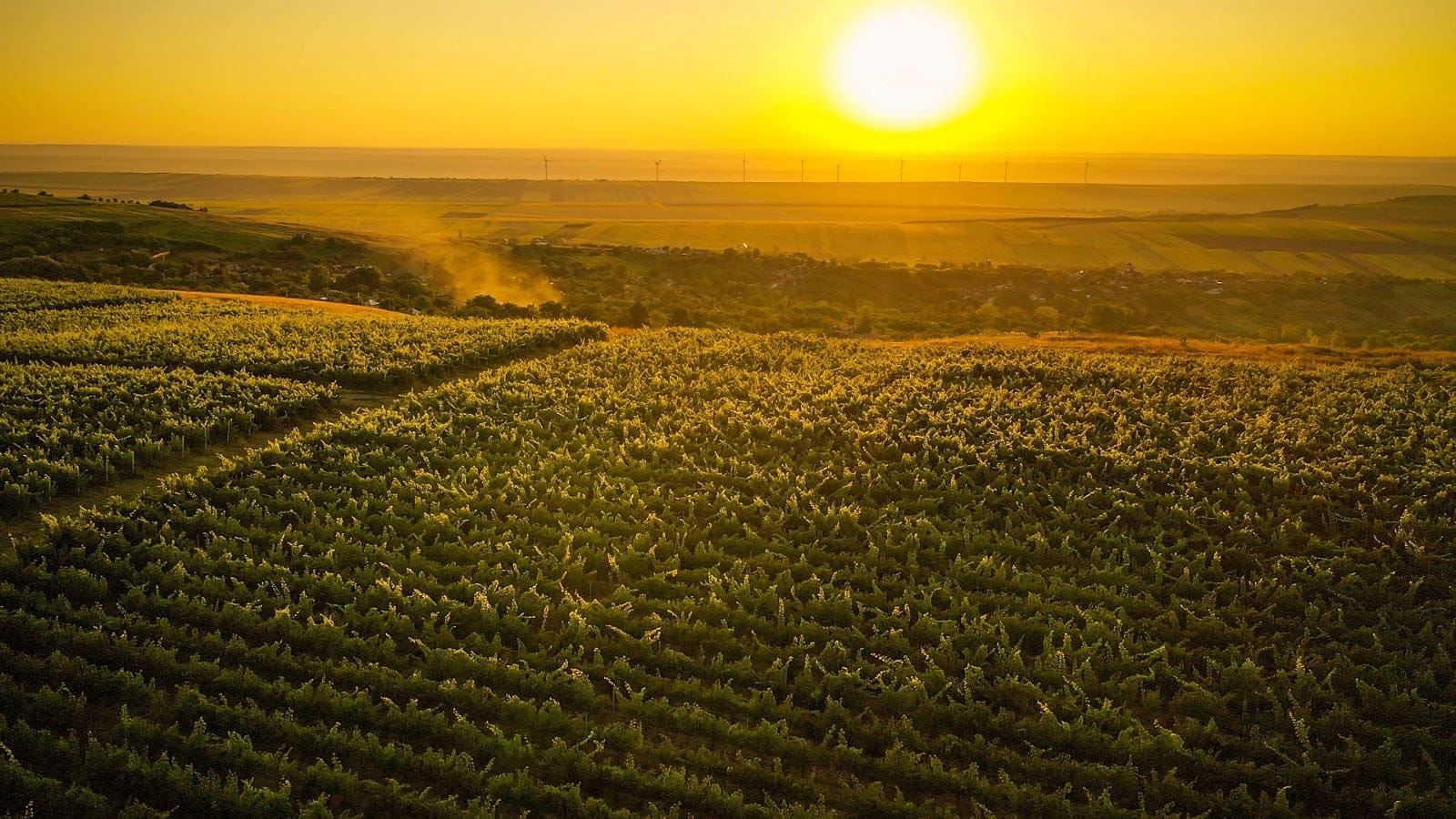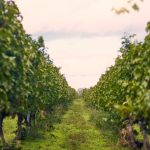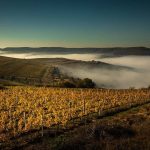What it means to be a winegrower at the Averesti Estates
In the world of wine, wine cellar owners and oenologists are starting to become kind of stars. They participate in fairs and events, at local or international tastings, and their names appear in the press and specialized blogs or, less often, even in the general media. But, behind them, rarely acknowledged by the public, are the people who spend almost every day of their lives between the vineyard rows. Because, as a very old saying says, fine wine is born in the vineyard.
It is difficult to understand, for those who have never spent even a day in a vineyard, the overwhelming amount of work that the job of a winegrower entails. It is enough to see a man’s hands during the dry or green cutting period (when the vine is prepared for the winter or when the shoots and leaves are adjusted for the summer) to get an idea. But the work of a winegrower means much so much more…
Diseases, rains, harvests and intuitions at Averesti Estates
The winegrower must pay attention to each leaf and each grape, to ensure that no disease that could affect the harvest creeps into the vineyard. Imagine his feelings when he knows that a plot is haunted by rot, but the rain does not allow him to intervene – just as a violent storm would not allow a countryside doctor to reach a sick child…
Beyond the role of the vineyard doctor, the winegrower must also function at the same frequency as the oenologists – they will tell him what kind of wine they want to make, and he/she must grow the grapes so that they obtain the desired result.
To better understand how the life of a winegrower works, we asked the two vineyard managers at the AverestiEstate about their work. One with many years of experience, who has spent all his life in the vineyard, another young and full of energy, ready to inherit his lessons. Warm people, with the characteristic modesty of those who work the land, do not want to see their names written, but they explain to us at length how they spend their days and years, their joys and sorrows.
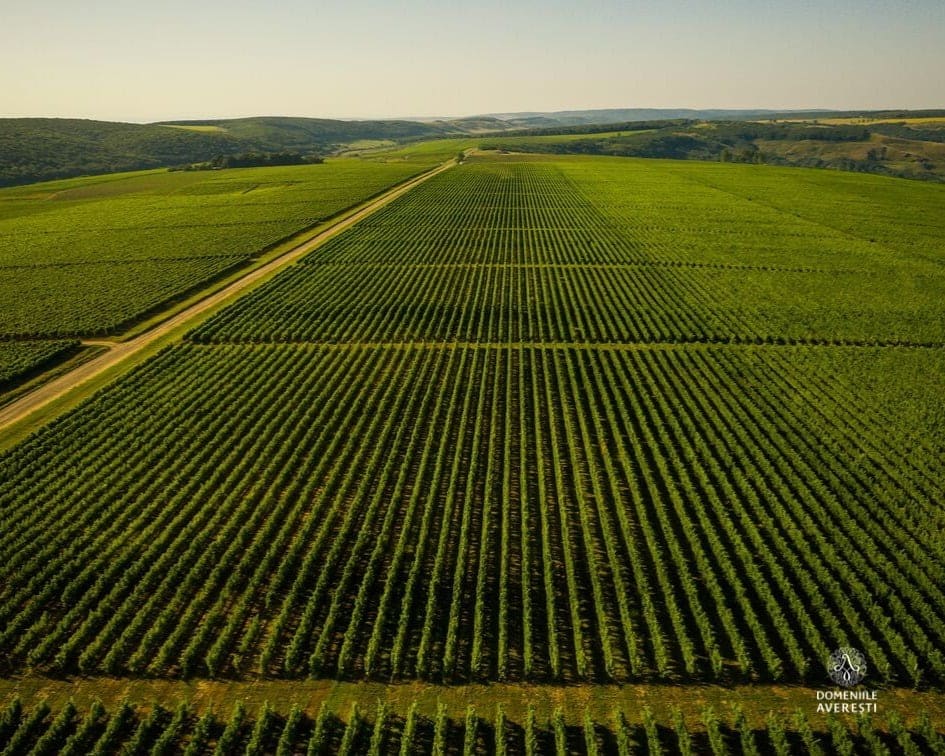
Man vs. machine. What does it mean to work in the vineyards at Averesti Estates
WOR: What does a day’s work in a vineyard at Averesti Estates? What time do you start and end a working day?
D.A.: Working in the vineyard, as romantic as it is, is also difficult and full of responsibilities. Our working day starts early in the morning and includes several stages depending on the season. In the spring we cut and tie the vine, a rather difficult job that requires precision and a minimum of experience or training.
In autumn, during the harvest, manual picking involves patience and attention, but also physical resistance. A row of vines can reach over 100 meters in length. In order to reduce the time and energy spent moving on a row, we start with teams coming from opposite ends, teams that meet in the middle of the row, change the row and finish again at the end, a kind of a zigzag movement.
And if during the year the day ends earlier, during the harvest we world until sundown. We also have mechanical harvesters, which harvest 10 times faster, but even so, the 650 hectares are worked half manually and half mechanically. Annually, we dedicate about 3 to 4 weeks to the harvesting campaign.
WOR: Zghihara or Busuioaca? Do you have a favourite type of grape?
D.A.: Here, Zghihara is our star, but Busuioaca is fragrant and special in colour and expression, we can definitely say that it is somewhat prettier.
WOR: What was the most difficult situation you went through while working in the vineyard?
D.A. Vineyard care is not an office job, although there we map out operations and estimate the need for people, materials etc., most of our time is spent outdoors, between the rows of vines. There the weather sometimes surprises us pleasantly, but also often with rain or disease.
The most difficult thing is to have both at the same time: to see that the plant is suffering, but not be able to treat it because it is raining outside. You need an objective mind and a lot of optimism to easily get through the changes Mother Nature is subjecting us, winegrowers and farmers alike, to.
WOR: Let’s say that hiring a new worker in the vineyard would depend on you. What qualities should the job candidate have in order to accept him?
D.A. The main 2 traits that a wine grower must have are patience and ingenuity. In the vineyard you have to wait, to be patient, it depends a lot on the environment, the temperatures, and the workers’ availability, but what helps you when problems arise – and they inevitably arise, year after year – is the ability to find solutions and to get mobilized.
Both traits belong to human nature, that’s why I think that in the first phase, I let myself be guided by the candidate’s impulsivity and their CV: experience, school, and hobbies.
WOR: If you had not practised this job, what would you like to do? As a child, what did you want to do when you grow up?
D.A. Being from around here, I grew up in this environment, in agriculture, following the rhythm of nature and I grew up far from the busy city life, so I find peace in this job. And if viticulture hadn’t chosen me, I wouldn’t have strayed too far from the natural environment, maybe a veterinarian or craftsman.
